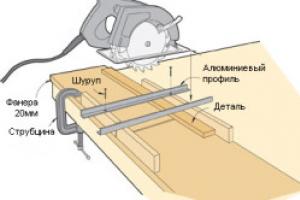Nominal one-part sentences combine impersonal nominal (I'm cold), nominative (nominal) and vocative sentences. Nominal sentences like I are coldly close in semantics to impersonal verbal ones, which is why they are included in the impersonal ones.
Nominative sentences are one-part sentences in which the main member is expressed by the idiom of a noun (sometimes a pronoun) or by a quantitative-nominal combination. Together with intonation, nominative sentences express the idea of being, the existence of named objects and phenomena.
Etc. : Evening. Night. Autumn. Silence.
Nominative sentences, in principle, do not depend on the context, are not constrained, are not connected, but the existential meaning is often clarified by the context. The main meaning is the affirmation of being, on which indicative, emotional meanings and expressions of will are layered. Important role In nominative sentences, intonation plays a role.
In terms of composition, nominative sentences can be uncommon and widespread (even widespread):
Etc. : 1916 Trenches...Mud. (unexpanded proposals).
Cold government paper, absurd beloved land.
(common suggestion)
According to their function, nominative sentences are:
1) descriptive (being, existential):
Etc. : Fog. River.
2) demonstrative (particles here, there, indicate the proximity and distance of an object):
Etc. : Here comes the forest. Here is the school, etc.
3) predicative nominatives or message nominative (evaluative-existential):
Etc. : Warm. Sunny. Joyfully - beauty!
4) incentive offers, which are divided into 2 groups:
· incentives and wishes:
Etc. : Attention. Hello. Good afternoon.
· incentive-imperative, conditioned by a situation requiring a quick response from the addressee.
Etc. : Scalpel (operation in progress). Fire (fight in progress).
proper names (these include names of books, magazines, paintings, inscriptions on signs, etc.)
Not all linguists consider them to be sentences.
Vocative sentences (“sentences-addresses”) are evaluated differently. Some scientists distinguish them into a special type of one-component sentences, while others include them among the nominative ones, while others consider them as indivisible.
Vocative sentences are addresses complicated by the expression of an undifferentiated thought, feeling, or expression of will. An address can be easily distinguished from a vocative sentence
The following groups of vocative sentences are distinguished by meaning:
1) vocative sentences-appeals, in which the addressee of the speech is named in order to attract his attention:
2) vocative sentences expressing an emotional reaction to the words and actions of the interlocutor:
The main member of a vocative sentence cannot be considered either a predicate or a subject, however, it can be determined by other members, for example, an application, which is the case with the main member - a pronoun.
Vocative sentences stand on the border between monocomponent and indivisible sentences. Conditionally including vocative sentences into one-part sentences (following A. A. Shakhmatov), it should be said that they are not typical one-part sentences, and this determines the ability of vocative sentences to pass into the category of indivisible sentences with the loss of the lexical significance of nouns.
The last type (genitive sentences) is represented by colloquial and everyday constructions, in which the independent genitive case of a name not only conveys the meaning of the presence, existence of an object (beingness), like the nominative case in nominative sentences, but also characterizes it from a quantitative point of view (the redundancy of something is asserted). or: A quantitative value can be expressed by a numeral or a noun in an indefinite quantitative value.
More on topic 21. One-part sentences of nominal type:
- 19. Structural and semantic properties of one-part sentences. Types of one-part sentences.
- 22. Indivisible sentences. Complete and incomplete sentences.
- 36. The proposal and its main features, various aspects of the study of the proposal.
- 38. One-part sentences as a special type of syntactic units, their typology and features of expression of the main member.
One-part sentences of nominal type
Infinitive sentences.
The question of the place of infinitive sentences in the system of one-part sentences is resolved in different ways. Some linguists distinguish them into a special structural type based on a specific predicative basis - block diagram(independent infinitive), correlation of an action or state with an active figure and modality expressed by the infinitive form and intonation (Grammars - 60, 70, 80, V.V. Babaytseva, V.A. Beloshapkova, N.S. Valgina, P A. Lekant, D. E. Rosenthal, O. B. Sirotinina, E. S. Skoblikova). Other linguists consider them as a special type of impersonal sentences based on the general syntactic feature of incompatibility of the main member with the nominative case (subject) (E.M. Galkina-Fedoruk, L.Yu. Maksimov, A.K. Fedorov, etc.). In the school textbook and in the textbook for teacher training colleges, they are also discussed within the framework of impersonal sentences. The main member of an infinitive sentence is expressed by an infinitive that does not depend on any other member of the sentence and denotes an action or state as desirable, extremely important, possible, inevitable.
Infinitive sentences should not contain an impersonal verb or an impersonal predicative word, since if they are present, the infinitive takes a dependent position, being an adjacent part of the main member of the impersonal sentence. Compare: I want to go to Crimea. - I would like to go to Crimea.
Semantic specificity of infinitive sentences is their designation of unreal (potential) action, desirable, undesirable, possible, impossible, extremely important, expedient, For example: You will never see such battles! You start. Don't explain it to me.
Quite common in infinitive sentences is the meaning of inducement to action, command, order, For example: Do not lean on the handrails! Don't walk on the lawns! All sleep!
Desirability value can be expressed using particles would, only, at least, only, if which are used with the infinitive, For example: Just to survive the winter; At least I could sleep; If only I knew...
Infinitive sentences are synonymous with impersonal sentences, but differ from them structurally, namely in impersonal offer various modal values are expressed by lexical units like necessary, necessary, impossible, extremely important in combination with an infinitive, and in infinitive sentences they are contained in the infinitive itself, sometimes in combination with particles, For example: It is extremely important for you to get down to business. - You should get busy.
Nominative (nominative) sentences- single-component, articulated sentences in which the semantic subject and its predicative attribute express the fact of existence, presence in objective reality.
In nominative sentences, the main member is framed as a subject and denotes an object characteristic of the situation being conveyed. Basic form of the main member and minimum composition sentences - nominative case of a noun, less often of a pronoun or numeral.
Both semantic and grammatical features of nominal sentences are characterized by a sharp originality in comparison not only with two-part, but also with one-part different types. The main feature of nominal sentences- fragmentation and at the same time large capacity of the expressed content. They name individual details of the situation, but the details are important, designed for the experience and imagination of the listener or reader, such that it is easy to imagine the overall picture of the described situation or event, For example: Night. Street. Flashlight. Pharmacy.
The main member of a one-part sentence has a form that coincides with the subject, but does not denote the bearer of the attribute, as in two-part sentences, but a special kind of attribute. At the same time, notes N.S. Valgina, the main member of denominative sentences does not have the characteristics of a predicate: it is not capable of being used with a copula and being an expressive of modal-temporal meanings; The speaker conveys the relationship of the object or phenomenon he calls to reality only with the help of ascertaining intonation. At the same time, nominal sentences always presuppose real modality and one of the meanings of the present tense, do not allow paradigmatic changes in moods and tenses, and are only affirmative, For example: The tops of the linden trees rustled. Light. Thunderclap.
Τᴀᴋᴎᴍ ᴏϬᴩᴀᴈᴏᴍ, a number of researchers, incl. and authors of school textbooks, adhere to traditional views and proposals like It was night is classified as a two-part sentence. At the same time, in Grammar -70 and 80, as well as in the three-part textbook by V.V. Babaytseva, L.Yu. Maksimov rejects the two-part nature of these sentences, and the verb be characterized as a service syntactic formant - an indicator of temporal reference.
There is no clear solution and question about the composition and boundaries of nominative one-part sentences, namely demonstrative sentences, headings and titles, nominative themes, forms of greeting and gratitude, nominatives of an evaluative nature, nominal sentences with determiners receive different interpretations. Some authors, in particular V.V. Babaytsev, includes these constructions in nominative sentences, others, for example N.S. Valgina, refers them to special designs. Let us consider the latter point of view in more detail.
The distinction between nominative sentences and constructions similar in form seems possible by taking into account such a property of a sentence as independent functioning. This approach makes it possible to identify as nominative sentences only those constructions that are able to function independently without context. In this case, the range of nominative sentences becomes quite defined and relatively narrow. They include: Winter. Here is the stream. Well, the weather. Four hours, etc.
Let's list constructions that coincide in form with nominative sentences:
1) The nominative case in the role of a simple name - names, inscriptions on signs. These constructions have no meaning of existence: To the supermarket. "Eugene Onegin".
2) The nominative case as a predicate in a two-part sentence can be used in incomplete sentences: Chichikov glanced sideways at him again as they moved into the dining room: Bear! The perfect bear! The guest extended his hand: - Ivanov. (the value of the im.p. is a sign).
3) Isolated use of the nominative case, nominative. There are prepositive and postpositive nominatives. Prepositive nominative- nominative representation, or topic, which names the subject of speech (thought) in order to evoke an idea about it in the mind of the interlocutor, the reader, and is located before the message: Minority... An age that requires special close attention.Postpositive nominative located after the message, serves the purpose of revealing the content of the preceding subject, given in a general, non-specific form: What a huge and difficult distance this is - 12 months.
Τᴀᴋᴎᴍ ᴏϬᴩᴀᴈᴏᴍ, nominative sentences- one-part sentences of the substantive type, the main member of which has the form of the nominative case and combines the functions of naming an object and the idea of its existence, being. The meaning of beingness is dominant, and this is the static existence of an object, in contrast to the dynamic one, where the process of the emergence of an object or phenomenon is emphasized, compare: There's a store around the corner; Bad weather again. Such designs by N.S. Valgina refers to elliptical two-part sentences with adverbial words, and V.V. Babaytsev - to the transitional type between one-part and two-part sentences.
In linguistic literature there are two classifications of nominative sentences:
1) semantic,
2) structural.
Each classification has a number of options, which are also reflected in the educational literature.
Semantic classification:
1) Option 1, presented in a three-part textbook V.V. Babaytseva, L.Yu. Maksimova, 1987, p. 105-107:
- existential(And flowers, and bumblebees, and grass, and ears of corn; And the azure and the midday heat);
- index fingers (Here is the mill. This is the evening of life);
- incentive:
A) incentive-desirable (Attention! Good afternoon Hello!);
b) incentive-imperative (situational) (Fire! (situation - battle). Syringe! Probe! (situation - surgery);
- evaluative-existential (What frost! What a frost! Flowers! Well, flowers!);
- proper-nominal ("First Joys", "An Extraordinary Summer" (books); "Tehran-43", "Russian Field" (films));
- "nominative representation" (specific variety) (Moscow! How much has merged in this sound for the Russian heart!).
2) Option 2, presented in Modern Russian, ed. EAT. Galkina-Fedoruk, M., 1964, part 2, p. 429-431:
- natural phenomena (Sultry afternoon);
- environment and setting, indication of the subject (Two-storey house. Veranda. Flowerbeds. Several benches and sun loungers.);
- appearance Living creatures (Regular, gently contoured oval face, fairly regular features, thick, beautiful hair, ordinary home hairstyle, quiet gaze ); human psychological state, emotions (Confusion, fainting, haste, anger, fear); emotional assessment in the form of an exclamation (What passions! What a wonderful night, what shadows and shine);
- result, generalization, conclusion, reason (- What to do, what to do! - the chairman sighed, leaning back in his chair. - A ruin... hourglass ); - modal meanings: doubt, distrust, affirmation, message-presentation (What is your name? - Natasha. Natasha Chistyakova);
- greetings, wishes, calls (Hello! Good afternoon Bon voyage!); incentive.
3) Option 3, presented in the Syntax of the Modern Russian Language N.S. Valgina. M., 1978, p. 186-188. This option takes into account the independent functioning of the nominative sentence out of context:
- intrinsically existential (Drizzle. Twilight. Road);
- objective-existential (Bush. Moss. Squat spruces);
- index fingers(Here is the willow. Here it is, stupid happiness with white windows to the garden);
- evaluative-existential(with emotionally expressive particles) ( Well, it's night! Fear. And boredom, my brother. And the character!);
- desirable-existential (If only you were healthy! If only it weren't death! If only happiness!).
Structural classification involves the division of nominative sentences based on prevalence and the way of expressing the main member.
So, in Grammar-60 stand out uncommon and common nominative sentences. IN uncommon sentences the main member must be expressed by a noun, personal pronoun or numeral, quantitative-noun phrase. Common offer may include a consistent and inconsistent definition.
In the textbook P.A. Lekanta"Syntax of a simple sentence in modern Russian", M., 1974, p. 43-53 structural types of nominative sentences are distinguished on the basis of the sign of dismemberment-non-segmentation. Undivided, unextended, syntactically indecomposable, with conditional extenders, For example: Table. Four chairs. Clear afternoon. Here's the house. Here comes the sun. What silence!Dissected, widespread with determinants, For example: There is taiga all around. And six months later - a new miracle. You're hysterical, Vasya.
N.S. Valgina highlights a special group of nominative sentences in Russian, having as the main member of the independent genitive case of the name, which not only conveys the meaning of the presence, the existence of an object, but also characterizes it from the quantitative side - the presence of a multitude of something is affirmed. This type of proposal is usually called genitive. Eg: To the people! Laughter! Colors! Food, food!
One-part sentences of nominal type - concept and types. Classification and features of the category “One-part sentences of nominal type” 2017, 2018.
Among predicates in the Russian language, three types (or types) are usually distinguished. These are simple verb, compound verb and compound nominal predicates. In this article we will talk about the latter.
Features of a compound nominal predicate
As the name suggests, this predicate is compound, that is, it consists of several parts. One of them plays a primarily or even exclusively grammatical role, while the second expresses the main meaning of the predicate. It is not difficult to guess that it is usually expressed by some nominal part of speech, that is, one whose name contains the word “name”: a noun, an adjective, a numeral. However, everything is not so simple.
Ways of expressing grammatical parts
The grammatical part of a compound nominal predicate is the linking verb “to be.” The same role can be played by some other verbs, “semi-links”: seem, become, etc.
The verb “to be” is in the required grammatical form. For example, He it will be fun, He was cheerful. It is not customary to write in the present tense in Russian "he is cheerful". The zero copula is used. In Romano-Germanic languages, the copula is preserved. Compare: He's cheerful. – He is merry (English)
The verb “to be” can be not only a connective, but also an independent simple verbal predicate (for example, I will soon have a bicycle.). It is not difficult to distinguish them; it is enough to put the sentence in the present tense, because the connective “to be” is not used in the present tense, but the verb, naturally, remains in the predicate position. Compare:
Ways to Express the Nominal Part
The nominal part of the predicate can be expressed in different parts speech, and not just names. The table below shows examples of compound nominal predicates expressed in different ways.
|
Method of expressing the noun phrase |
Example |
|
Noun |
Moscow is capital of Russia. |
|
Adjective |
He's funny. He cheerful. |
|
Numeral |
My favorite number is seven. |
|
Participle |
He was appointed headman. |
|
Pronoun |
The topic was different. |
|
The dress fits her. |
|
|
Infinitive |
My dream is to see the sea. |
|
Phraseologism |
He is some kind of fish and meat. |
|
Syntactically indivisible combinations |
young man was tall. |
Syntactically indivisible combinations are one long predicate, since not a single word can be torn away from them without loss of meaning. Let's say, in our last example, it cannot be said that “the young man was tall” - this is meaningless.
Please note that the same word can perform different functions in different sentences. For example, the word "funny" in our example the predicate, and in the sentence “We liked the funny clown." - definition.
What have we learned?
Compound nominal predicates consist of a linking verb “to be” (less often “semi-links “seem”, “become”, etc.), which disappears in the present tense (zero connective), and a nominal part, which can be expressed by all parts of speech , except for the verb in the personal form and the gerund.
Test on the topic
Article rating
Average rating: 4.6. Total ratings received: 337.
The type in which sentences are fundamentally verbless:
a) do not contain physical verb forms;
b) zero forms;
c) do not involve the omission of a verb. In their semantics there are no meanings of action, process, or attribute. They have an existential meaning, which is expressed syntactically: Summer. Nominative and genetic sentences are distinguished.
- - shares, the authorized person of which is the holder of the document, whose name is indicated on the shares and entered in the book of the joint-stock company...
Dictionary of legal terms
- - shares that are registered in a special register. This register is maintained in a joint stock company and in it, along with the share, information about the owners of the share itself is also registered...
Librarian's terminological dictionary on socio-economic topics
- - English registered stocks shares on which the name of the owner is indicated...
Dictionary of business terms
- - ...
Encyclopedic Dictionary of Economics and Law
- - rivers in Perm province, in Verkhotursky district; Bolshaya and Malaya are the left tributaries of the river. Tury, and the Middle I. flows into the Big I. Along the Malaya I. there are gold placers, and in the upper reaches there are copper ores...
- - According to Bancroft’s terminology, substantive, or monogenetic, pigments are paints that themselves for the most part represent substances that are colored and which, no matter how the dyeing conditions change...
Encyclopedic Dictionary of Brockhaus and Euphron
- - the same as Direct dyes...
Great Soviet Encyclopedia
- - Sentences that do not contain separate grammatical expressions for the subject and the predicate, represented by only one composition, i.e., one main member, uncommon or common, in form...
- - see the phrase...
Dictionary of linguistic terms
-
Dictionary of linguistic terms T.V. Foal
- - 1) structural diagram of the sentence and its predicative basis; 2) member of the proposal and its qualifications; 3) a) the way of expressing a member of a sentence; b) dependence and method of connection of a member of a sentence...
Dictionary of linguistic terms T.V. Foal
- - Types of one-part sentences in which different verb forms are used as independent ones. General property of G.o.p. - lack of subjectivity. The correlation between the subject and the attribute is not presented...
Syntax: Dictionary
-
Syntax: Dictionary
- - A type of incomplete sentence, characterized by unsubstituted position of the building elements of the structural scheme of the sentence, the role of which is usually played by the subject and predicate...
Syntax: Dictionary
- - One of the specific types, characterized by a number of features: 1) the main structural feature is that there are no members of the sentence: neither main nor secondary...
Dictionary of linguistic terms T.V. Foal
"nominal (substantive) one-part sentences" in books
Nominal "yaks" - to the front
From the book Terrible Years author Levin Israel SolomonovichPersonalized “yaks” - to the front Patriotic initiative of Saratov collective farmers. - Meetings with Marshal Voroshilov. - Let's sum it up. - Death of Marina Raskova. - Help for Stalingrad. From the first days of the war, a nationwide movement began to create a defense fund. Workers
Personalized watch
From the book There are twenty-four hours in a day author Kiselev Vladimir SergeevichPersonalized watches In the summer of 1924, there was unprecedented dryness in the Moscow region. There was almost no rain. The ponds have dried up. The bread stood dusty, with an empty, shriveled ear. The thermometer often showed plus 30 degrees. In July - August the forests caught fire. A dry wind often blew into the city
Personalized watch from the minister
From the book The Glitter and Poverty of Russian TV author Razzakov FedorPersonalized watch from the minister No sooner had work on the series begun than it was immediately “frozen” (only eight episodes were filmed). This happened after the series’ customers—the heads of RTR, Sergei Skvortsov and Pavel Korchagin—left the channel. In this condition
Question 41 Sentence. Law of supply. Supply curve. Change of offer
authorQuestion 41 Sentence. Law of supply. Supply curve. Change
Question 49 Price elasticity of supply. Supply curve
From book Economic theory author Vechkanova Galina RostislavovnaQuestion 49 Price elasticity of supply. Curve
Question 3 Sentence. Law of supply. Supply curve. Change of offer.
From the book Microeconomics author Vechkanova Galina RostislavovnaQuestion 3 Sentence. Law of supply. Supply curve. Change of offer. ANSWER SUPPLY – the quantity (volume) of goods offered for sale on the market at a certain moment or period. In value terms, supply represents the sum of market prices of these
Question 17 Price elasticity of supply. Supply curve.
From the book Microeconomics author Vechkanova Galina RostislavovnaQuestion 17 Price elasticity of supply. Supply curve. PRICE ELASTICITY OF SUPPLY is an indicator of the degree of sensitivity, the reaction of supply to changes in the price of a product. It is calculated using the formula: The method for calculating supply elasticity is the same as
§ 133. Noematic sentence. Thetic and synthetic sentences. Views suggestions
From the book Ideas to Pure Phenomenology and Phenomenological Philosophy. Book 1 author Husserl Edmund§ 133. Noematic sentence. Thetic and synthetic sentences. Proposals in the field of representations Now it would be necessary to carefully make these distinctions in all areas of acts, and also, for the sake of completing the whole, take into account the thematic points which authors Guseva Tamara Ivanovna
7.11. Two-part and one-part sentences The composition of a sentence includes a predicate, subject and secondary members of the sentence, while words related to the predicate form the composition of the predicate, and words related to the subject form the composition
Personalized plastic cards
From the book Ideas worth a million, if you're lucky - two author Bocharsky KonstantinPersonalized plastic cards The system of cumulative discounts and bonuses is a good motive for purchasing a more expensive product. Therefore, plastic cards can become an additional tool for attracting regular customers. Such a buyer will choose, for example, a series
Lesson 2.1 Affirmative sentences in Russian and English. Members of the sentence
From book English grammar with Vasya Pupkin author Gorodnyuk NataliaLesson 2.1 Affirmative sentences in Russian and English languages. Members of sentence N: Well, we’ve finished talking about parts of speech. How do you feel, Vasily, is something becoming clearer? Q: Well, yes, now I know what building blocks our proposals will consist of. Left
Personalized Il-76 of the Russian Military Transport Aviation
From the book World of Aviation 2006 02 author author unknownNominal sentence
Same as nominative sentence.
Educational dictionary stylistic terms. - Novosibirsk: Novosibirsk State University. O. N. Laguta. 1999.
See what a “nominal sentence” is in other dictionaries:
I. In syntactic stylistics: a one-part sentence in which the predicate is expressed by the nominative case of a noun or quantitatively by a nominal phrase. Night. Street. Flashlight. Pharmacy (A. Blok); Three PM. N.p.... ... Educational dictionary of stylistic terms
Predication- (from Lat. praedicatio utterance) one of the three main functions of linguistic expressions (along with nomination and location), the act of connecting independent objects of thought, expressed by independent words (normally a predicate and its actants), with the aim of ...
List of Russian-speaking Egyptologists- ... Wikipedia
nominale- (nominal | nominal | nominal | nominal | nominale) Relating to the category of name, which includes, along with nouns, adjectives (in particular, participles): nominal declension, nominal endings, etc. Nominal conjugation forms (formes... ...
Egyptian language- Self-name... Wikipedia
Adjective- 1) part of speech denoting a sign (property) of an object, used in the syntactic functions of definition with a noun (“ new house") and the predicate or its nominal part (Arabic alqasru hasanun “the palace is beautiful”, English he ... ... Great Soviet Encyclopedia
Bogolyubov, Mikhail Nikolaevich- Mikhail Nikolaevich Bogolyubov Date of birth: January 24, 1918 (1918 01 24) Place of birth: Kyiv Date of death: November 25, 2010 (2010 11 25) ... Wikipedia
Korean- (Joseonmal 조선말, Joseon 조선어 until 1945, later in the DPRK, Hangugo 한국어 in South Korea) an isolated language, the genetic connections of which are established only hypothetically. Distributed in the DPRK (official language; number of speakers 18.8 million people, 1982, ... ... Linguistic encyclopedic dictionary
proposal- (sentence | proposition | Satz | clause, sentense | proposizione) A statement that consists mainly of a predicate (see predicate), usually verbal, but sometimes nominal (Quant à se qu il a dit, sornettes! “As for that... Five-language dictionary of linguistic terms
Gerd, Alexander Sergeevich- Wikipedia has articles about other people with the same surname, see Gerd. Alexander Sergeevich Gerd Date of birth: June 23, 1936 (1936 06 23) (76 years old) Scientific field ... Wikipedia
Books
- A simple sentence in modern Russian. Two-part nominal, one-part verbal, one-part nominal, V. S. Yurchenko. The book examines the system of syntax of a simple sentence in modern Russian. In this case, the proposal is understood as a certain set of standard structures that differ from each other... Buy for 612 UAH (Ukraine only)
- Arabic lessons. Writing, reading, basic grammar (+ CD-ROM), Natalya Dubinina, Natalya Kovyrshina. This manual is intended for those who are starting to study the Arabic literary language. The authors sought to teach reading and writing as simply and clearly as possible, to give the most capacious and…








